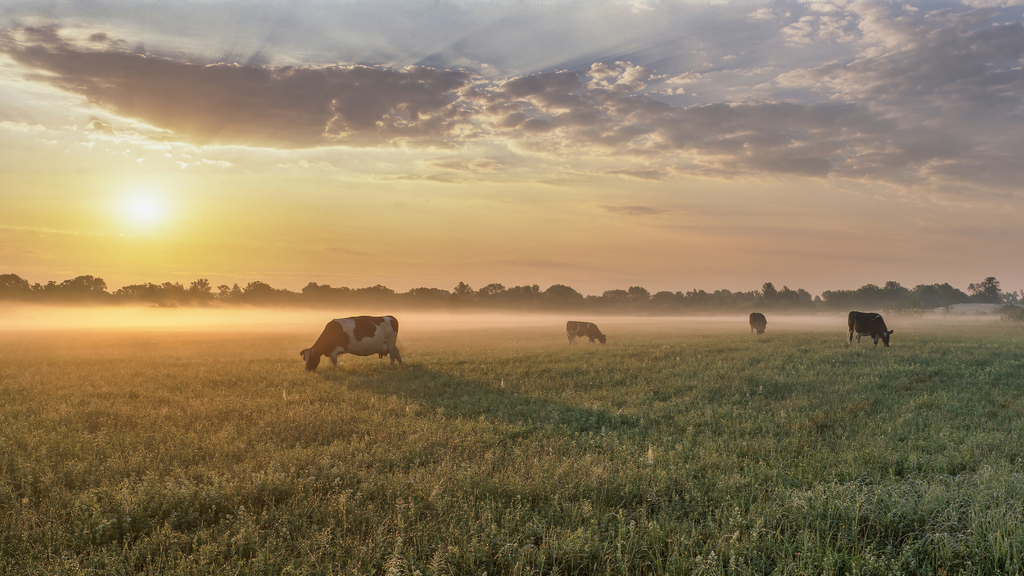Demonizing cows, pushing lab-grown meat, preaching plant-based everything, and pressuring small farmers off their land—this is not environmentalism. It is corporate control dressed in kale.
Meanwhile, celebrities fly private while telling you to limit your steak intake and vacation days. Politicians dine on ribeye while announcing new “climate-friendly” guidelines to limit your meat consumption.
If this were truly about saving the planet, we would be promoting locally sourced food, regenerative agriculture, carbon-sequestering ruminants, and support for small, diversified farms. But we’re not. Instead, we’re told to eat cricket chips and lab meat grown in steel vats. You have to ask… who really benefits?
1. G20: Eat Meat While Telling You Not To

Here’s the scene: world leaders gather at a lavish G20 climate summit to discuss how we must all reduce our consumption of meat and fish… over plates of meat and fish. You can’t make this up. They dine on sea bass, wagyu, and caviar while simultaneously warning about the “climate impact” of your grocery cart. Hypocrisy, much? This isn’t about the environment—it’s about control. If meat was really so dangerous, why is it always on the menu for the elite?
2. Leo’s Cow Problem: Fake vs. Real Environmentalism

Leonardo DiCaprio lectures the masses about climate change, all while racking up frequent flyer miles and promoting plant-based alternatives backed by billionaires. Meanwhile, real environmentalism is grazing peacefully in the pasture. Cows, when managed regeneratively, nourish the land, enrich the soil, and help sequester carbon. The solution isn’t fake meat grown in bioreactors—it’s cows on grass, doing what they’ve always done. And spoiler: they’re a lot better for the land than monocropped soy sprayed with glyphosate.
3. Carbon Passports and Banning Holidays?

The UK floated the idea of carbon passports to track how often you fly, drive, or eat meat. The message? No more holidays for the average person. While billionaires crisscross the globe on private jets and buy up farmland, regular people are told to stay home, eat bugs, and say goodbye to bacon. This isn’t about saving the planet—it’s about restricting freedom. Climate policy is starting to look less like conservation and more like social engineering.
4. The Big Cow Lie

You’ve been told that cows are ruining the planet. But the truth is simple: cows don’t add a single atom of carbon to the atmosphere that wasn’t already pulled from it by a plant. That’s the beauty of the carbon cycle. A cow eats grass, digests it, and releases carbon back into the air—where it’s absorbed again by the grass. It’s not adding anything new. It’s cycling. Fossil fuels, on the other hand, release ancient carbon that was locked away for millions of years. That’s the difference. Cows didn’t break the planet—ultra-processed foods, monocrops, and petroleum did.
5. Vegan Foods That Are Ruining the Planet

Let’s talk “plant-based.” Almonds? They require over 1.1 gallons of water per nut. Avocados? Mass deforestation across Mexico and Central America. Soy and other vegan staples? Strip the soil bare, destroy biodiversity, and require synthetic fertilizer just to keep going. And let’s not forget the global shipping required to stock shelves with out-of-season produce and packaged soy patties. The plant-based agenda is not as green as it looks. It’s often worse than meat, especially when the meat comes from a regenerative farm down the road.
6. One Cow = 1.5 Million Calories

A single cow can produce over 1.5 million calories. That’s enough to feed a family for months. Beef is dense, efficient, and shelf-stable when preserved properly. Compare that to lettuce, which is 95 percent water and spoils in days. Or plant-based meats that require dozens of ingredients, heavy processing, and plastic packaging. A cow is the original superfood: no additives, no marketing hype, just bioavailable nutrients that humans have thrived on for millennia.
7. Beef is Good for You. And Cows Are Good for the Planet

Beef is loaded with complete protein, B vitamins, zinc, iron, and healthy fats. It is one of the most nutrient-dense foods on the planet. And when raised right—on pasture, rotating through fields—cows restore ecosystems. They build topsoil, prevent desertification, and pull carbon back into the ground. The war on beef isn’t about science or sustainability. It is about replacing real food with patented products owned by corporations. Please don't fall for it.
Final Thought: Eat the Beef. Support the Cow. Question the Narrative.
This is not about farting cows. It never was. It is about centralizing food, controlling supply chains, and steering people away from real nourishment. But you have a choice. You can support regenerative ranchers, opt out of the ultra-processed lab food future, and fuel your body the way nature intended.
That’s why Carnivore Bar exists—to put real beef, real fat, and real food back into your hands. No bugs. No soy. No seed oils. Just animal-based nutrition is the ancestral way.
We are not falling for the cow blame game. And neither should you.
References:
- Mayer, Greg. “G20 Leaders Served Meat and Fish at Climate Summit Despite Calls to Cut Consumption.” The Independent, 1 Nov. 2021.
- Teague, Richard, et al. “The Role of Ruminants in Reducing Agriculture’s Carbon Footprint in North America.” Journal of Soil and Water Conservation, vol. 71, no. 2, 2016, pp. 156–164.
- Monbiot, George. “Carbon Passport Could Restrict Air Travel.” The Guardian, 4 Mar. 2021.
- Mitloehner, Frank. “Clearing the Air: Livestock’s Contribution to Climate Change.” UC Davis Department of Animal Science, 2019.
- Mekonnen, Mesfin M., and Arjen Y. Hoekstra. “A Global Assessment of the Water Footprint of Farm Animal Products.” Ecosystems, vol. 15, no. 3, 2012, pp. 401–415.
- Bellarby, Jessica, et al. “Cool Farming: Climate Impacts of Agriculture and Mitigation Potential.” Greenpeace International, 2008.
- White, Robin R., and Mary Beth Hall. “Nutritional and Greenhouse Gas Impacts of Removing Animals from US Agriculture.” Proceedings of the National Academy of Sciences, vol. 114, no. 48, 2017, pp. E10301–E10308.

